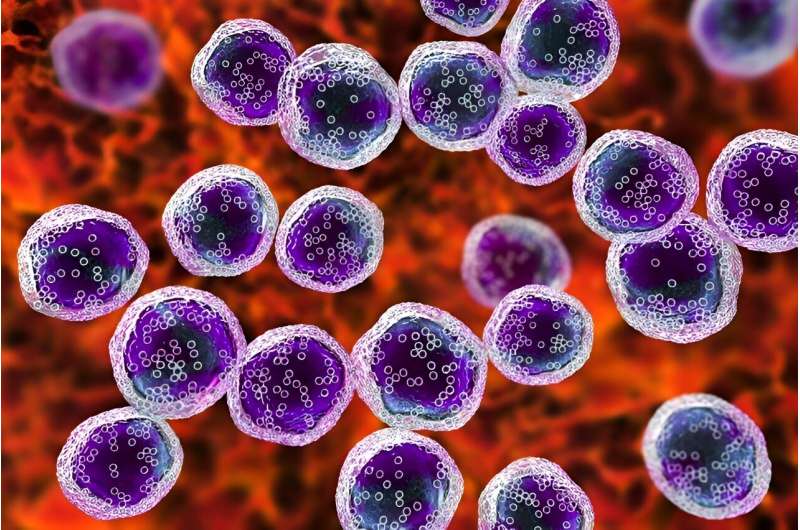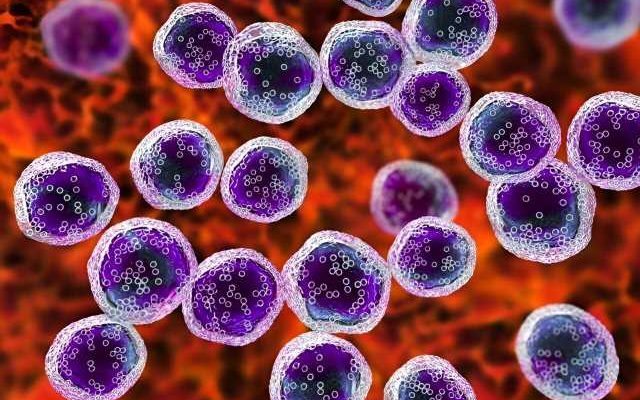
For patients with diffuse large B-cell lymphoma (DLBCL), the chimeric antigen receptor T-cell therapies (CAR-T) axicabtagene ciloleucel (axi-cel) and lisocabtagene maraleucel (liso-cel) are not cost-effective, according to a study published online Dec. 5 in the Annals of Internal Medicine.
Amar H. Kelkar, M.D., M.P.H., from the Dana-Farber Cancer Institute in Boston, and colleagues examined the cost-effectiveness of second-line CAR-T versus salvage chemoimmunotherapy and consolidative autologous stem cell transplantation (ASCT) for treatment of DLBCL in a state transition microsimulation model. The target population was “high-risk” patients with DLBCL.
The researchers found that in the base-case analysis, the increase in median overall survival was four and one months for axi-cel and liso-cel, respectively. The incremental cost-effectiveness ratio was $684,225 and $1,171,909, respectively, per quality-adjusted life year (QALY) for axi-cel and liso-cel; the corresponding incremental net monetary benefit was −$107,642 and −$102,477.
In sensitivity analysis, to be cost-effective with a willingness-to-pay threshold of $200,000 per QALY, the cost of CAR-T would need to be reduced to $321,123 and $313,730 for axi-cel and liso-cel, respectively. During a five-year period, implementation in high-risk patients would increase U.S. health care spending by about $6.8 billion.
“Moving CAR-T to the second line would have massive cost implications, but our results demonstrate that substantial price reduction could result in a cost-effective therapy,” the authors write.
More information:
Amar H. Kelkar et al, Second-Line Chimeric Antigen Receptor T-Cell Therapy in Diffuse Large B-Cell Lymphoma, Annals of Internal Medicine (2023). DOI: 10.7326/M22-2276
Journal information:
Annals of Internal Medicine
Source: Read Full Article
